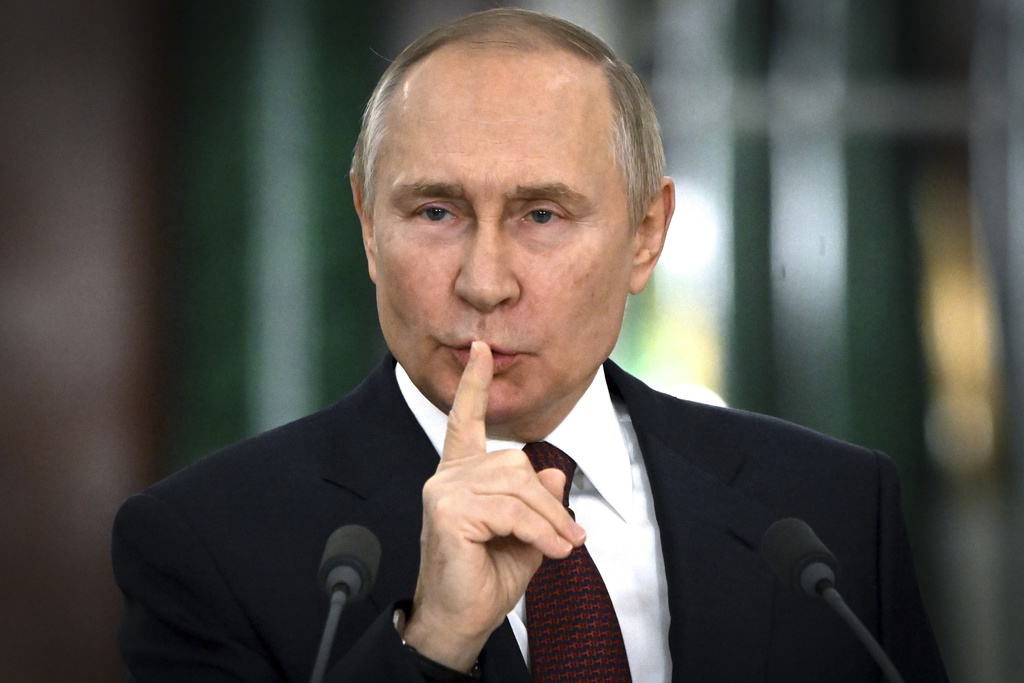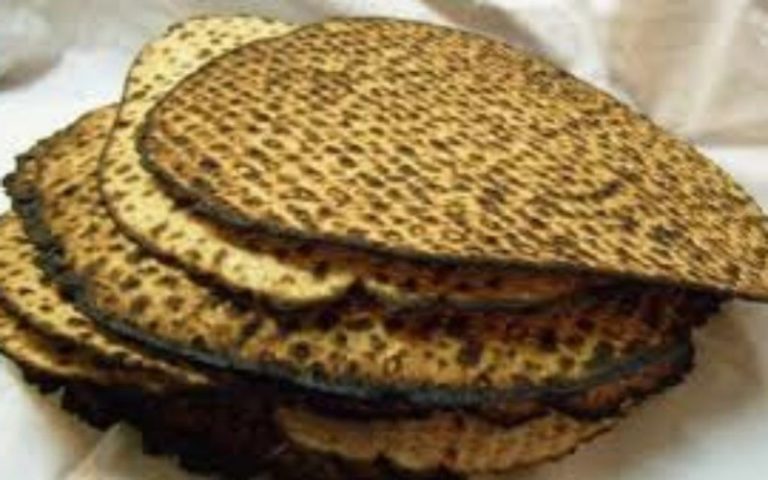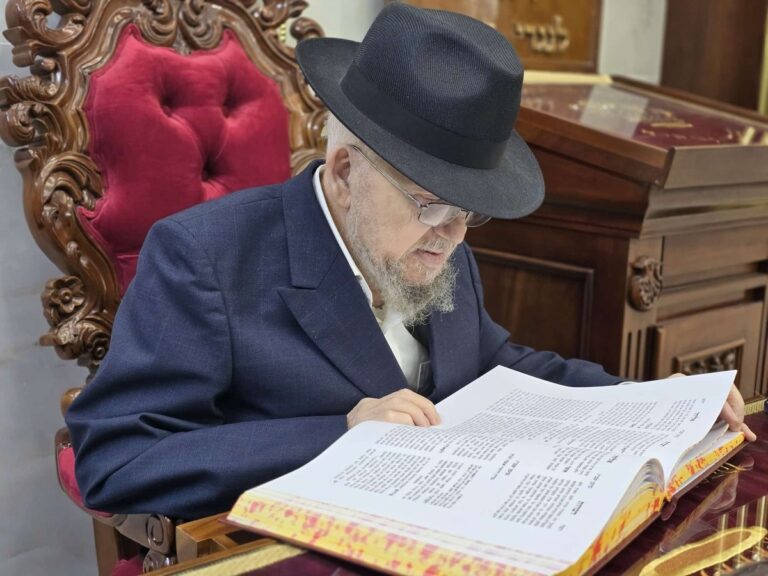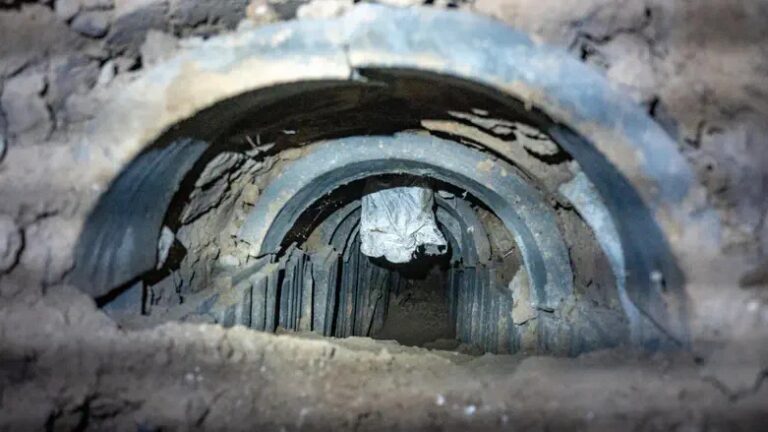When the invasion of Ukraine began in February 2022, some analysts predicted it might take as few as three days for Russian forces to capture the capital of Kyiv.
With the war now entering its third year, Russian President Vladimir Putin seems to be trying to turn that initial failure to his advantage — by biding his time and waiting for Western support for Ukraine to wither while Moscow maintains its steady military pressure along the front line.
Putin’s longer timeline still has its downside, with the conflict taking a heavy toll on Russia by draining its economic and military resources and fueling social tensions even as the death of imprisoned Russian opposition leader Alexei Navalny serves as a chilling reminder of the Kremlin’s ruthless crackdown on dissent.
Putin has repeatedly signaled a desire to negotiate an end to the fighting but warned that Russia will hold onto its gains. Earlier this month, he used an interview with former Fox News host Tucker Carlson to urge the United States to push its “satellite” Ukraine into peace talks, declaring that “sooner or later, we will come to an agreement.”
Some recent developments have fed the Kremlin’s optimism.
Aid for Ukraine remains stuck in the U.S. Congress while NATO allies have struggled to fill the gap following Ukraine’s underperforming counteroffensive last summer. Ukrainian President Volodymyr Zelenskyy’s decision to dismiss his popular military chief, Gen. Valerii Zaluzhnyi, disappointed many in the country and worried its Western allies.
And Donald Trump, who has repeatedly claimed that he would negotiate a quick deal to end the war if elected, recently spooked NATO by saying he could allow Russia to expand its aggression in Europe if alliance members fail to increase their defense spending.
Tatiana Stanovaya of the Carnegie Russia Eurasia Center said a possible Trump return to the White House would serve Putin’s goals.
“He sees Trump as a figure likely to wreak destruction and believes the consequences of a second Trump presidency would be to weaken the West and deprive Ukraine of the support it needs,” Stanovaya said in a commentary.
As the Kremlin watches for more signs of crumbling Western support for Ukraine, Russian forces captured the eastern stronghold of Avdiivka over the weekend after a fierce battle in which Ukrainian forces reported an increasingly desperate shortage of munitions. The seizure set the stage for a potential Russian push deeper into Ukraine-held territory.
“While no large-scale offensive is currently taking place, Russian units are tasked with conducting smaller tactical attacks that at minimum inflict steady losses on Ukraine and allow Russian forces to seize and hold positions,” said Jack Watling and Nick Reynolds of the Royal United Services Institute. “In this way, the Russians are maintaining a consistent pressure on a number of points.”
Amid the fierce battles in the east, Russia also has sought to cripple Ukraine’s defense industries with a steady series of strikes. It has used long-range cruise and ballistic missiles as well as Iranian-made Shahed drones to saturate and overwhelm Ukrainian air defenses that are experiencing a growing shortage of munitions.
“In terms of Russian industry’s capacity to support ongoing operations, Russia has significantly mobilized its defense industry, increasing shifts and expanding production lines at existing facilities as well as bringing previously mothballed plants back online,” Watling and Reynolds said. “This has led to significant increases in production output.”
They also note that Russian arms industries continue to depend on Western-supplied components, arguing that tighter enforcement of sanctions could disrupt this.
Some Moscow analysts acknowledge, however, that the Russian military is facing multiple challenges.
Retired Gen. Yuri Baluyevsky, the former chief of the military’s General Staff, admitted that Ukrainian air defenses has effectively barred Russian warplanes from Ukrainian airspace and often make it risky for them to operate even over Russian-controlled territory. Baluyevsky said in a recent article that Western-supplied artillery are superior to Russian systems.
Western officials and analysts note that while the 1,500-kilometer (930-mile) front line has remained largely static with neither side making significant gains, Ukrainian forces have launched bold missile and drone attacks deep behind the line of contact, raising the costs for the Kremlin and challenging Putin’s attempts to pretend that life in Russia is largely unaffected by the war.
Ukraine has launched audacious attacks on oil terminals and refineries deep inside Russia, as well as its naval and air assets in the Black Sea region, in a painful blow to Moscow’s military capability.
That includes the sinking of two Russian amphibious assault ships and a missile boat along with strikes on air bases in Crimea that knocked out radar facilities and destroyed warplanes. Last month, Ukrainian troops downed a Russian early warning and control aircraft over the Sea of Azov and badly damaged a flying command post — some of Moscow’s most precious intelligence assets.
Western officials praised the efficiency of Ukrainian attacks, noting Kyiv has smartly used its limited resources to rout far more numerous Russian forces and destroy about 20% of the Black Sea Fleet, effectively ending Moscow’s maritime dominance there.
The U.K. Ministry of Defense said in a recent intelligence update that Ukraine’s successes forced the Russian navy to sharply limit operations in the western Black Sea, allowing Kyiv to expand its agricultural exports despite Moscow’s withdrawal from a deal brokered by Turkey and the U.N. that guaranteed safe shipment of Ukrainian grain.
Putin, who is all but certain to win another six-year term in the March 15-17 presidential election, has sought to consolidate public support by casting the conflict as a fight against the expansionist West that has armed Ukraine in a bid to weaken Russia.
Even though he claims the public overwhelmingly supports what the Kremlin calls its “special military operation” in Ukraine, new cracks have emerged in the country’s tightly controlled political system.
Thousands of Russians lined up in freezing temperatures in many cities to sign petitions supporting the candidacy of Boris Nadezhdin, a liberal politician who made ending the war his chief campaign pledge. While Nadezhdin was eventually barred from the ballot by election officials who tossed out many signatures as invalid, the massive show of opposition sympathies clearly embarrassed the Kremlin.
In another sign of anti-war sentiments, wives of some soldiers recruited during a hasty and widely unpopular partial mobilization in fall 2022 demanded their discharge from service.
But Putin has continued to project total control: Police arrested hundreds simply for laying flowers in tribute to Navalny, whose death dealt a devastating blow to the already fractured opposition.
Adding to the Kremlin’s problems, protesters clashed with police in the province of Bashkortostan last month following the conviction and sentencing of a local activist. The protest, driven by tensions between indigenous Bashkir people and ethnic Russians, raised the specter of new cultural and nationalist divisions.
Last summer, Putin faced perhaps the most serious challenge in his nearly quarter-century rule when mercenary chief Yevgeny Prigozhin ordered his private military company to march on Moscow to oust top military leaders. The brief mutiny ended with a deal envisioning the mercenaries moving to Russian ally Belarus, and Prigozhin died in a suspicious plane crash two months later that was widely seen as the Kremlin’s revenge.
His death shored up Putin’s authority and cemented loyalty among the elite, but the episode showed the fragility of Kremlin power.
Despite challenges, Russia’s vast economic and military potential gives Putin the ability for a protracted war.
Kremlin spokesman Dmitry Peskov says the conflict has taken longer than expected because of Western intervention. “The special military operation may last for somewhat longer, but this can’t change the course of things,” he said.
Mark Galeotti, head of the Mayak Intelligence consultancy, said in a recent podcast that “there is no obvious resistance to Putin” because of “a strongly established and pervasive police state there to protect him.”
“So on the one level, we shouldn’t anticipate that predictable levels of pressure are likely to bring this regime down at any particular point,” Galeotti said. “But on the other hand, we also have to acknowledge that its capacity to respond to crises, to the unexpected, has been strikingly diminished.”
(AP)











